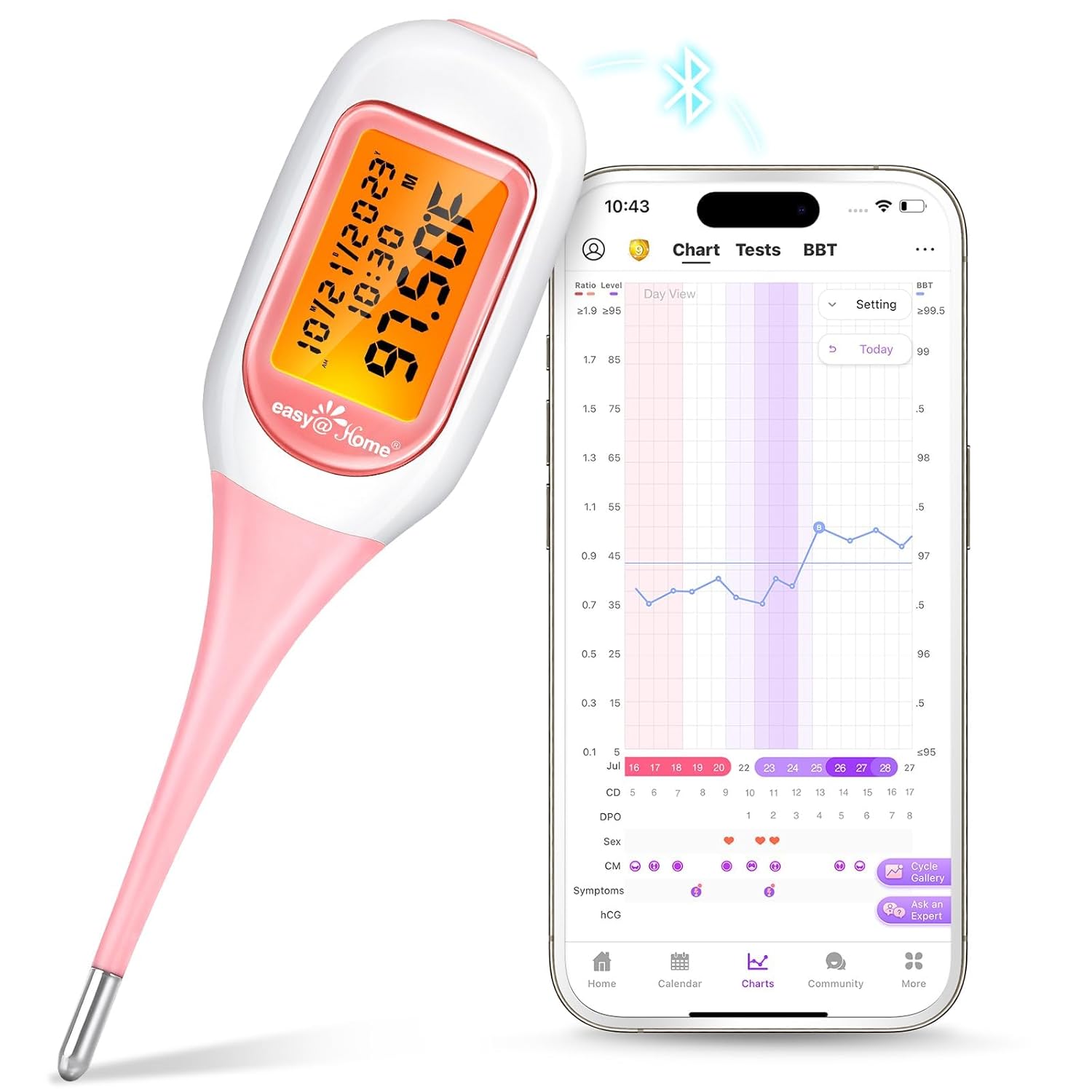








Price: $39.99
(as of Apr 07, 2025 07:38:17 UTC - Details)
What is the Best Time to Test for Pregnancy?
Introduction
When it comes to testing for pregnancy, timing is everything. Many women find themselves asking, "What is the best time to test for pregnancy?" The answer isn't just straightforward; it involves understanding your body, your cycle, and how pregnancy tests work. In this article, we will delve into the best times to take a pregnancy test, the accuracy of different testing methods, and common misconceptions that can lead to confusion. Whether you are eagerly anticipating a positive result or hoping for an alternative outcome, knowing when to test can make a significant difference in your experience.
Understanding Your Menstrual Cycle
Why Your Cycle Matters
To determine the best time to test for pregnancy, it's essential to understand your menstrual cycle. Your cycle typically lasts around 28 days, but this can vary. The first day of your period marks the beginning of a new cycle. Ovulation usually occurs about 14 days after your period starts, which is when you are most fertile. If you have regular cycles, tracking your ovulation can help you pinpoint the best time to test.
Tracking Ovulation
Using ovulation predictor kits, monitoring basal body temperature, or simply noting changes in your cervical mucus can help you understand when you ovulate. Timing intercourse during this window increases the chances of conception. After ovulation, if fertilization occurs, implantation takes place roughly 6 to 10 days later. This timeframe is crucial for knowing when to test.
Timing Your Pregnancy Test
Testing After a Missed Period
One of the most common questions is, "When should I take a pregnancy test?" The best time is usually after you’ve missed your period. This is around two weeks after ovulation for many women. By this time, your body has had enough time to produce the hormone hCG, which pregnancy tests detect. Testing too early can lead to false negatives, which can be disheartening.
First Morning Urine
For the most accurate results, it's recommended to test with your first morning urine. This urine is typically more concentrated, which means it has higher levels of hCG if you are pregnant. Testing at this time can increase the accuracy of your results, especially in the early days of pregnancy.
Types of Pregnancy Tests
Home Pregnancy Tests
Home pregnancy tests are widely available and can be used easily at home. Most tests claim to be over 99% accurate when used correctly after a missed period. However, the accuracy can vary depending on the brand and how early you test. Always read the instructions carefully for the best results.
Blood Tests
If you want definitive results, a blood test at your doctor’s office is the way to go. Blood tests can detect pregnancy earlier than home tests, as they can identify hCG levels even before a missed period. However, they require a visit to a healthcare provider, which can be less convenient for some.
Common Misconceptions About Testing
Testing Too Early
Many women are eager to find out if they are pregnant, leading them to test too early. Taking a test before your missed period can result in a false negative. It's essential to be patient and wait until after your period is due for the most reliable outcome.
Interpreting the Results
Interpreting the results can also be confusing. A faint line on a home pregnancy test can lead to uncertainty. Generally, any line that indicates a positive result means you are pregnant, even if it's faint. If in doubt, retesting a few days later can provide clarity.
Conclusion
Understanding what is the best time to test for pregnancy is crucial for obtaining accurate results. By tracking your menstrual cycle, waiting until after a missed period, and using your first morning urine for testing, you can maximize your chances of getting a clear answer. Whether you’re hoping for a positive result or preparing for other possibilities, being informed can help you navigate this emotional journey with confidence. Always remember, if you have any doubts or concerns, consult a healthcare professional for guidance.
Get Pregnant Easier than ever with Premom: Easy@Home Newly Launched PremomAPP Integrated Smart Basal Thermometer is the most advanced bluetooth enabled basal thermometer on the market. Whether you are trying to conceive (TTC), avoid pregnancy naturally, or just want to know your body better, the Easy@Home’s Premom with Smart Basal Thermometer does it all with ease
Seamless and Smart: Take a quick measurement early in the morning and fall back asleep. Basal Body Temperature (BBT) will be synced with Premom APP seamlessly. No need to write down temperatures or even open your phone. The Premom APP will chart your BBT and generate the coverline automatically to pinpoint the BBT spike with precision
Intelligent: Premom predicts the fertility window accurately using an advanced algorithm that incorporates all your fertility signs including: BBT, ovulation test results, PdG test results and period information for the best prediction. You can track and view your cycle and fertility windows prediction at any time
Clinically High Measurement Accuracy: Clinically Accurate with high precision at ±0.09/±0.05. It only takes about 1.5 - 2 minutes to read result. Unlimited record stored on cloud with your account. Memory recall up to 30 temperature records. y. Each record shows Date and exact shown track history easily. With its low energy profile, the pre-installed button battery lasts about 3 months. You can choose between Fahrenheit and Celsius
Other Features and Service: Large screen with backlight for reading in the dark. Gentle confirmation beep when test is complete, no timer needed. All your data is stored in the cloud, no concern about manually uploading or losing data. Experienced customer service agents are available for any questions you may have. We are so confident that you will love the bbt thermometer for ovulation
